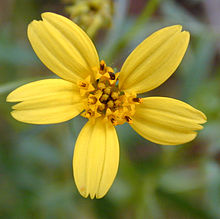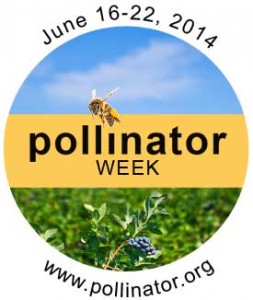Are you concerned about the reduced numbers of pollinating insects? Pollinators are a necessary part of plant and crop success, which mean we depend on them for food as well. Even with the valid concern about loss of bee colonies, this is a good time to understand that pollinators also include many insects, birds, butterflies, bats, beetles and other animals. Some plants even depend on four-legged mammals to move pollen from plant to plant.
The U.S. Senate supported National Pollinator Week years ago, and it has spread internationally. Events are planned around the country to celebrate and educate.
Two simple ways to help pollinators are 1) reduced used of pesticides and 2) protection of habitat.
Protecting habitat can be as simple as adding a few new perennial flowers to your garden and leaving more un-mowed, or un-cultivated natural growth areas along the edges of properties. This also ties in with the simple basics of IPM. Creating habitat for pollinators also encourages natural predators of insect pests.
 A typical Asteraceae flower head (here Bidens torta) showing the individual flowers
A typical Asteraceae flower head (here Bidens torta) showing the individual flowers
Composite flowers, those from the asteraceae family, are favorites of pollinator insects and beneficial insects. The above image from Wikipedia shows the center of composite flowers are actually groups of small separate flowers surrounded by large attracting petals. Flowers within a flower!
Composite flowers and a variety of plant material in your yard and garden are a helpful and beautiful way to support pollinators.
Here are three ‘fast facts’ from the Pollination Partnership:
Learn more at their website: Pollinator Partnership
Happy Summer!

